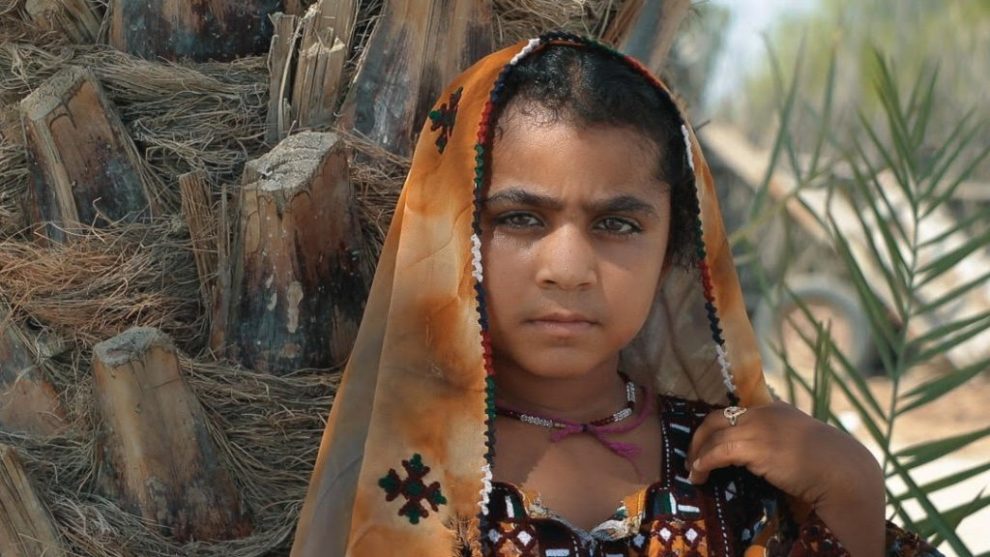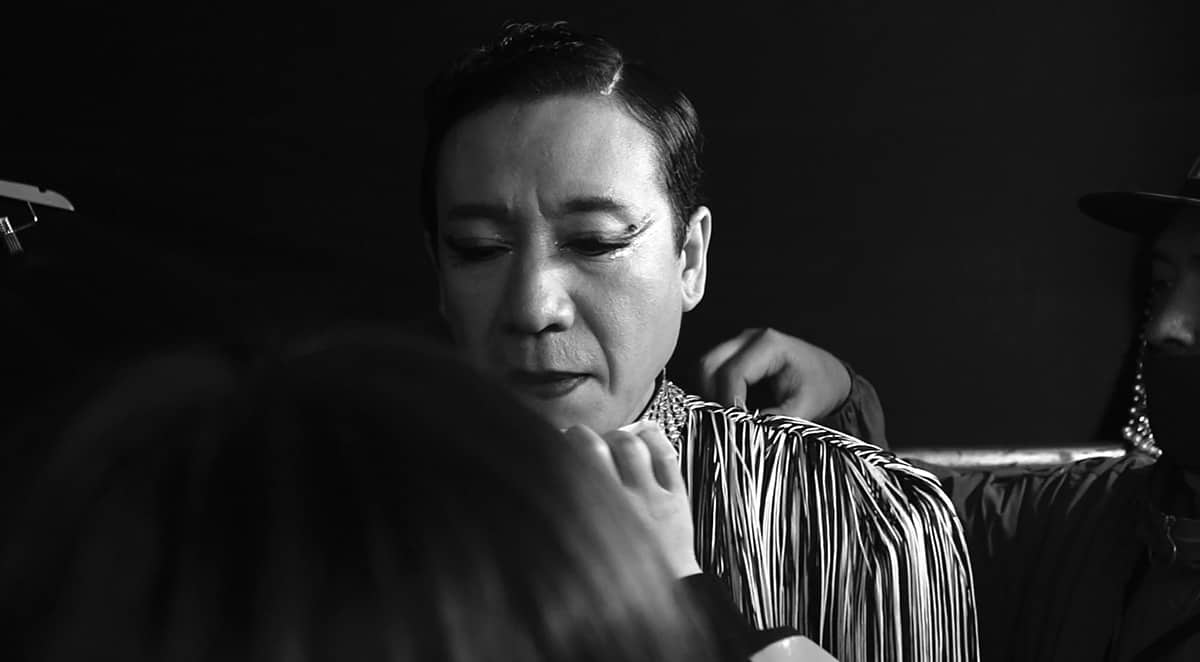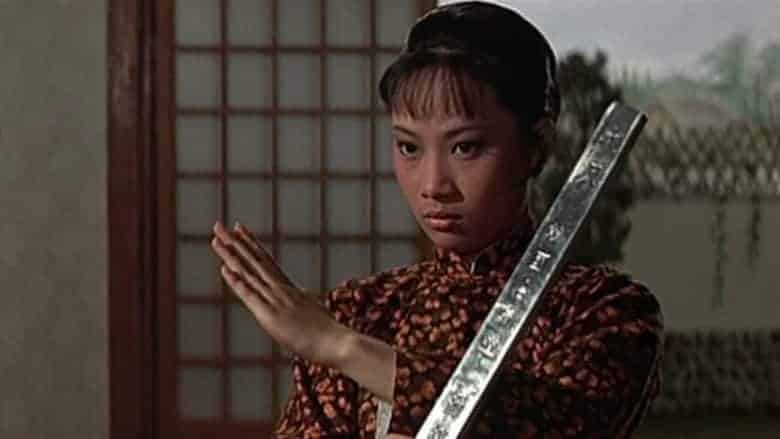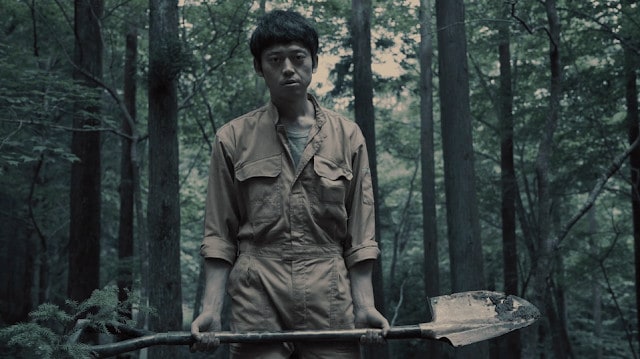Young and talented Iranian director Teymour Ghaderi brings to our attention a small community in the remote Province of Sistan and Baluchestan, in the southeast of Iran, to tell us a moral fable in disguise, in his 8-minute documentary “Gando”.
“Gando” is screening at Life After Oil International Film Festival

“Gando” is narrated by its very own protagonist, Hawa, a 9-year-old girl who abruptly asks us if we've ever considered how hard it would be to live without a right hand. She has lost half of her right arm in circumstances that will be revealed later. Nevertheless, life goes on, the village teacher will train her to write with her left hand and she has already adapted to the playground life, climbing palm trees with the boys and applying nail varnish with contortionist skills. Her village – Hawa explains – is very dry and the girls need to go to collect water and do the washing in a small pond nearby. It was there that the tragic accident occurred; where Hawa was saved by her sister and avenged (or maybe not) by her father.
Despite its strategic location with nearly 200 miles of border in common with Afghanistan, 575 miles with Pakistan and being Iran's only oceanic port, on the Gulf of Oman, the mountainous province of Sistan and Baluchistan struggles to develop its potential, due to the lack of industrial, agricultural and transportation infrastructure and – consequently – the limited number of employment opportunities. Its poverty is tightly linked to the water scarcity and therefore a direct product of climate change. But “Gando” treats these matters with a light touch and leave them in the background. Its real focus is on the fragile equilibriums that rule our permanence on the green planet. In fact, “Gando” is a perfect metaphor for the relationship between man and nature and their coexistence and mutual parasitism, characterized by gratitude, respect and fear. It's a give-and-take game, a very precarious harmony whose imbalance is the foundation of all environmental complications.
Director Ghaderi's studies in photography and scriptwriting find in Gando a flattering display. Framed images are crisp and aesthetically pleasing, characterised by the contrast between the colourful children and the grey and dusty landscape. Being based on Hawa's account, the storytelling relies on rhythm and tempo. It gradually reveals the clues with astute slowness, creating an atmosphere of suspense and mystery: the dramatic mutilation, the “where” and “why”, to finally reveal the identity of the sleepy culprit. Man's thirst for revenge is even portrayed with a hint of humour in its clumsy uselessness.
“Gando” is a love letter to the bizarre harmony that governs our lives on planet earth and Hawa's final line encapsulates perfectly the spirit of the film.















